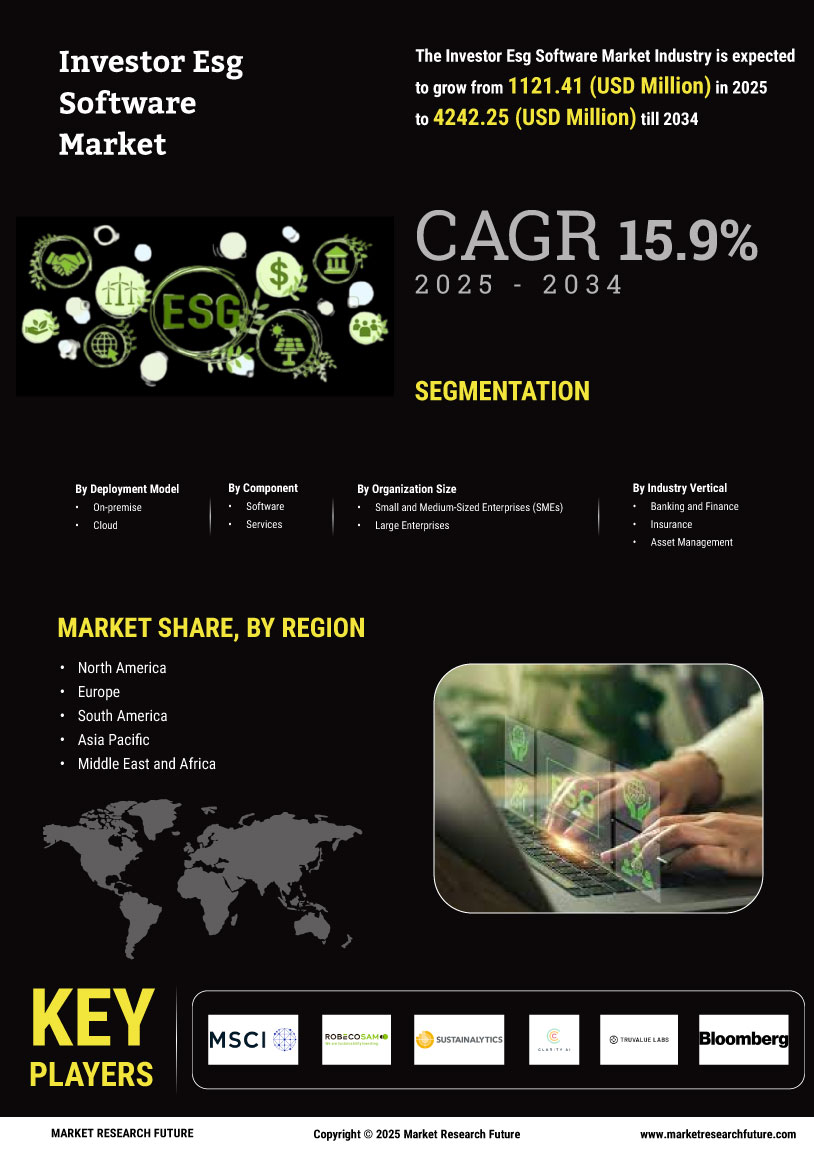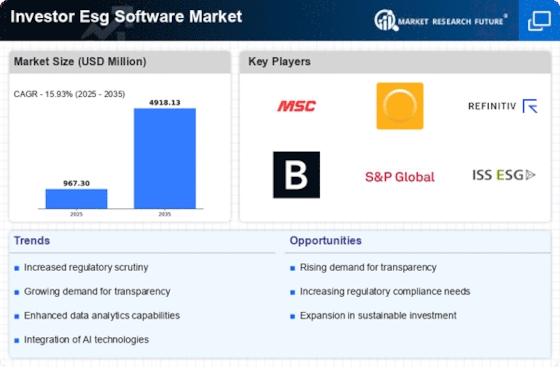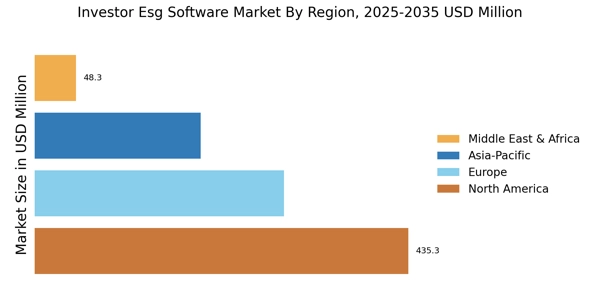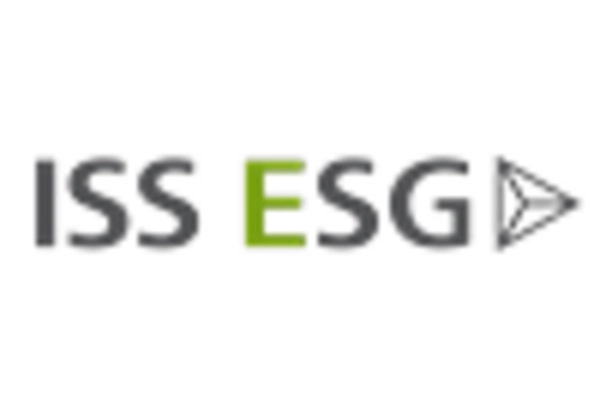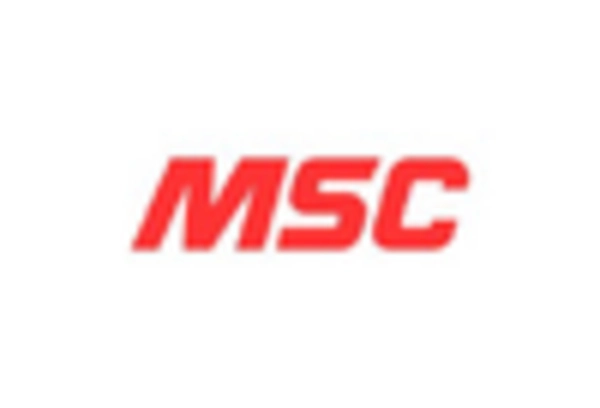Regulatory Pressures
The Investor Esg Software Market is significantly influenced by increasing regulatory pressures aimed at promoting sustainable business practices. Governments and regulatory bodies are implementing stringent guidelines that require companies to disclose their ESG performance. For instance, regulations in various jurisdictions mandate that publicly traded companies report on their sustainability efforts. This regulatory landscape compels organizations to adopt ESG software solutions to ensure compliance and streamline reporting processes. The market for such software is projected to grow as companies seek to avoid penalties and enhance their reputations. The Investor Esg Software Market, therefore, stands to benefit from the ongoing evolution of regulatory frameworks that prioritize ESG considerations.
Technological Innovations
Technological innovations are reshaping the Investor Esg Software Market, as advancements in data analytics and artificial intelligence enhance the capabilities of ESG software. These technologies enable more accurate assessments of ESG risks and opportunities, allowing investors to make informed decisions. The integration of machine learning algorithms into ESG software facilitates the analysis of vast datasets, providing insights that were previously unattainable. As a result, investment firms are increasingly adopting these sophisticated tools to gain a competitive edge. The market is expected to expand as technological advancements continue to evolve, driving demand for innovative solutions within the Investor Esg Software Market.
Growing Investor Awareness
The Investor Esg Software Market is witnessing a surge in investor awareness regarding environmental, social, and governance (ESG) factors. Investors are increasingly recognizing the importance of sustainable investing, which has led to a heightened demand for software solutions that facilitate ESG analysis and reporting. According to recent data, approximately 80% of institutional investors now consider ESG factors in their investment decisions. This trend indicates a shift towards responsible investing, compelling asset managers and financial institutions to adopt ESG software to meet investor expectations. As awareness continues to grow, the Investor Esg Software Market is likely to expand, driven by the need for tools that provide transparency and accountability in investment practices.
Enhanced Stakeholder Engagement
Enhanced stakeholder engagement is becoming a critical driver in the Investor Esg Software Market. Companies are recognizing the need to communicate their ESG initiatives effectively to various stakeholders, including investors, customers, and regulators. This has led to an increased demand for software that not only tracks ESG performance but also facilitates transparent communication of sustainability efforts. As stakeholders demand more accountability, organizations are turning to ESG software solutions to enhance their reporting capabilities and foster trust. The Investor Esg Software Market is likely to benefit from this trend, as companies seek to strengthen their relationships with stakeholders through improved ESG transparency.
Shift Towards Sustainable Investment Strategies
The Investor Esg Software Market is experiencing a notable shift towards sustainable investment strategies, as more investors seek to align their portfolios with their values. This trend is reflected in the growing number of funds that incorporate ESG criteria into their investment processes. Data indicates that sustainable investment assets have reached trillions of dollars, highlighting the increasing importance of ESG factors in investment decision-making. As investors prioritize sustainability, the demand for ESG software solutions that facilitate the integration of these strategies is likely to rise. Consequently, the Investor Esg Software Market is poised for growth as firms adapt to this evolving landscape.
